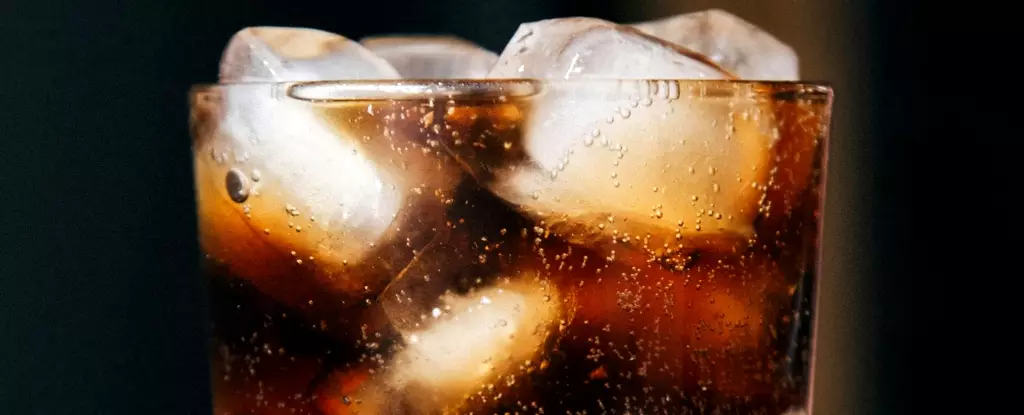Sugary beverages, including sodas and energy drinks, have been intricately designed to captivate consumers with their overwhelming sweetness. Ingredients like high fructose corn syrup and various artificial sweeteners make these drinks enticing, providing a jolt of pleasure that consumers quickly associate with happiness or reward. However, this initial gratification masks a more sinister reality: these drinks contribute little to no nutritional value while posing significant health risks. Regular consumption of sugar-laden beverages has become a primary contributor to a range of chronic ailments, including obesity, type 2 diabetes, cardiovascular disease, and dental health issues.
Recent findings from a comprehensive study by researchers at Tufts University are particularly alarming. The research indicates that around 1.2 million new cases of cardiovascular disease and 2.2 million new diabetes cases develop annually due to the increased intake of sugar-sweetened beverages (SSBs). While awareness of these dangers has begun to permeate public consciousness in developed countries, the alarming patterns of consumption in developing nations require immediate attention.
The ongoing health crisis linked to sugary beverages is not evenly distributed across the globe. Countries with limited resources are experiencing devastating health consequences. Dariush Mozaffarian, senior author of the study, points out that communities in low- and middle-income nations not only have a higher consumption of harmful products, but they are also ill-prepared to manage the long-term health effects these beverages can incur.
In Mexico, approximately one-third of new diabetes cases are linked to sugary drinks, while in Colombia, this figure rises to nearly half. The situation in South Africa is equally troubling, with sugary beverages attributed to around 28% of new diabetes cases and 15% of new heart disease diagnoses. These statistics reveal a dire need for public health initiatives aimed at addressing the excessive marketing and availability of sugary drinks in these vulnerable communities.
The researchers defined sugar-sweetened beverages as any drink containing added sugars and offering at least 50 kilocalories per eight-ounce serving. This broad categorization includes an array of products such as commercial soft drinks, energy drinks, fruit punches, and homemade lemonades. What’s crucial to note is that this study intentionally excluded beverages like sweetened milk and 100% fruit juices from its definition. However, excessive consumption of even these seemingly healthier alternatives can still lead to health risks.
The extensive data analyzed, which consisted of beverage intake from 450 surveys across 118 countries and encompassing around 2.9 million individuals, paints a bleak picture of the impact of SSBs on global health. About 80,000 fatalities are attributed to type 2 diabetes, alongside an additional 258,000 deaths associated with cardiovascular diseases each year due to SSB consumption.
The implications of these findings underscore an urgent call to action. Researchers stress the necessity for evidence-based interventions to diminish sugary beverage consumption before more lives are adversely affected by their implications on health. Laura Lara-Castor, first author of the study, articulates the need for swift changes in public health policy and consumer behavior designed to mitigate the consumption of these dangerous products.
The issue also raises questions about consumer education and awareness programs that must develop momentum. Even as public awareness regarding the risks associated with sugary drinks begins to grow, it remains alarmingly insufficient, particularly in regions where the rates of consumption are at their highest.
To combat this rising tide of health issues, several strategies can be implemented. Public health officials can introduce regulations to limit the marketing and availability of sugar-laden beverages, especially in schools and local communities. Education campaigns emphasizing healthier dietary options as well as the inclusion of taxes on sugary drinks have shown promising results in countries like Mexico.
Community involvement is also vital for instigating change. Grassroots movements aimed at promoting water consumption and advocating for healthier choices can evolve into broader cultural shifts toward better eating and drinking habits. Collaboration between governments, health organizations, and communities can lead to more comprehensive strategies that target both prevention and education.
The seductive nature of sugary beverages has far-reaching implications for global health. Understanding the severity of their impact and recognizing the urgent need for intervention can mark the beginning of a significant public health movement. The time has come to tackle this crisis head-on, for the health of millions hangs in the balance.


Leave a Reply